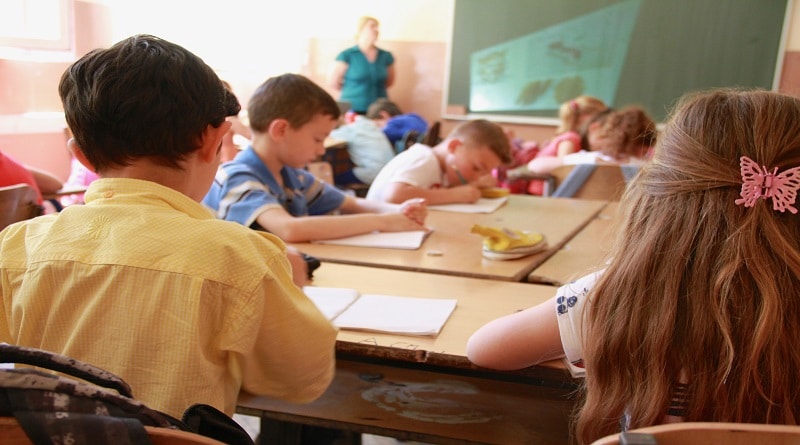Do you want to make a difference in the lives of children? Do you want to inspire, teach and motivate a new generation? If you have excellent communication skills, a passion for teaching, have great people/children skills and have patience then this could be the right course for you.
What is Education – Primary Teaching
This course will allow you to teach in primary schools. You will teach all subjects from the primary schools curriculum.
What third level courses are available?
- Education – Primary Teaching (Mary I, DCU,
Other:
- Education – Primary Teaching (DCU, Marino Institute, Maynooth University)
- Early Childhood Teaching and Learning
- Arts Education
- Education and Psychology – Primary Teaching
- Education – Primary Teaching – International
Studying Education – Primary Teaching in college
Primary teaching courses are offered in a number of universities such as Mary Immaculate College, Dublin City University, Maynooth University and Marino Institute for example. The below information is based on the Education – Primary Teaching course offered by Mary I. This is a 4 year, Level 8 course that is full time. The course allows students to gain the necessary skills and requirements needed to teach a new generation of children.
Your first year in an undergraduate course is typically seen as the foundation year. You will cover the basics of primary teaching, where it all began and many aspects of the background of Irish education. You will gain an idea as to what direction you will be moving in throughout your course and begin your journey to the classroom.
Examples of modules you will cover in first year of college will include Language and Literacy, An Ghaeilge agus Múineadh na Gaeilge, Introduction to Mathematics and its Teaching, Schools and Society, Developmental Psychology, Introduction to Technology and Educational Methodology, Supporting the Child as Learner, Introduction to the Creative Arts, Introduction to Science and Ethics, Religions and Beliefs as well as doing your first professional placement.
Your second year of your course will add to the foundation that you built in your first year and add to it further. You will cover modules from Social Studies 1: The Global Teacher, Christian Religious Education 1 or Religious Education in Multi-denominational Schools, Social, Personal, Health, and Physical Education and Inclusive Education for Children with Special Educational Needs to Pedagogy of Maths and teaching and Learning with ICT, Schools and Society, The Creative Arts and many more. At the end of your second year, you will decide whether to take the Multidisciplinary B Ed programme or to pursue a specialism in Liberal Arts or Education.
Your third year will see you carry out quite a lot of research and cover modules including Assessment For and Of Learning, Early Childhood Education: Curriculum, Research and Pedagogy, Research Methods: Ethical foundations for teaching and research and Early Primary Education and Advanced Educational Methodology among many other areas.
In your fourth year you will place a huge emphasis on your professional practice in order to apply your skills practically and gain an insight into all that is involved in being a great teacher in a classroom. You will also work on your dissertation.
Specific course layouts and content covered may differ from university to university but you will gain the exact same qualifications and cover the same areas overall. Be sure to research your university and course in depth to ensure it is the right fit for you.
Career Options
Following your studies you will be qualified to teach in primary school from Junior Infants all the way up to 6th Class. You can also take up other roles in the schools such as SNA or SET teaching.
There are also opportunities to continue your studies at postgraduate level to specialise in a particular area such as Speech and Language, for example. A lot of teachers top at their undergraduate degree unless there is an area that they are passionate about and want to delve into to bring it into their classroom for the benefit of the students.
There are many qualities and skills needed in the role of a primary school teacher. These include excellent communication skills, excellent organisation skills, time management skills, people skills, the ability to work well under pressure, ability to work with children, a passion for teaching and making a difference in the lives of children, patience, a critical thinker and problem solving skills among others.
Related Jobs
- Primary School Teaching
- SNA or SET teaching
- Secondary School Teaching
- Playschool/Early Childhood Education
- Speech and Language Therapy
Further Study
Visit postgrad.ie for more information.
FAQ
Different courses and different colleges will have different entry requirements. It’s always safest to check with the individual higher education institution which is available on their websites. As a general rule Leaving Cert students should have a minimum of six subjects which should include: Two H5 (Higher Level) grades and Four O6 (Ordinary Level) grades or four H7 (Higher Level) grades. Subjects must include Mathematics, Irish or another language, and English.
Specific QQI Certificates and Awards may be accepted. Be sure to research this in detail.
The highest points required to study Education – Primary Teaching last year were 507 points to study in Maynooth University (Froebel), Mary Immaculate College required 495 points, DCU required 488 points, Marino required 484 points and DCU required 409 points last year.
Where can I study?
For other courses in the area you would like to explore, you can do so here.
Did you know?
- Teaching and education is more than learning from books. It is a holistic approach which incorporates emotional, intellectual and physical development.
- A large part of a child’s brain architecture is built in the first three years of their lives.
- Babies and kids can laugh up to 300 times a day.
Resources












Comments